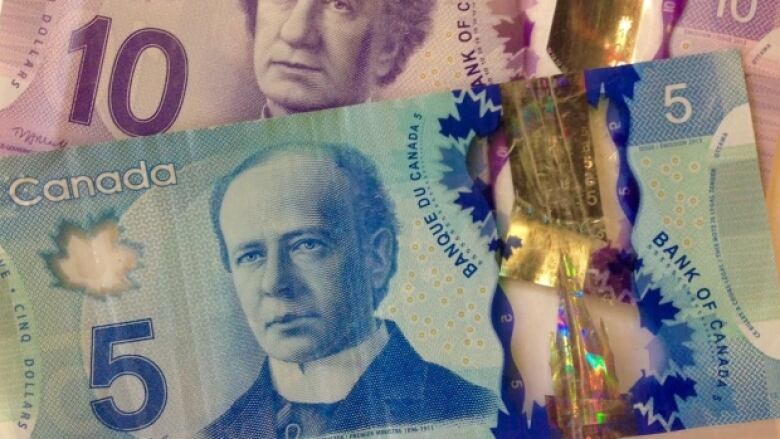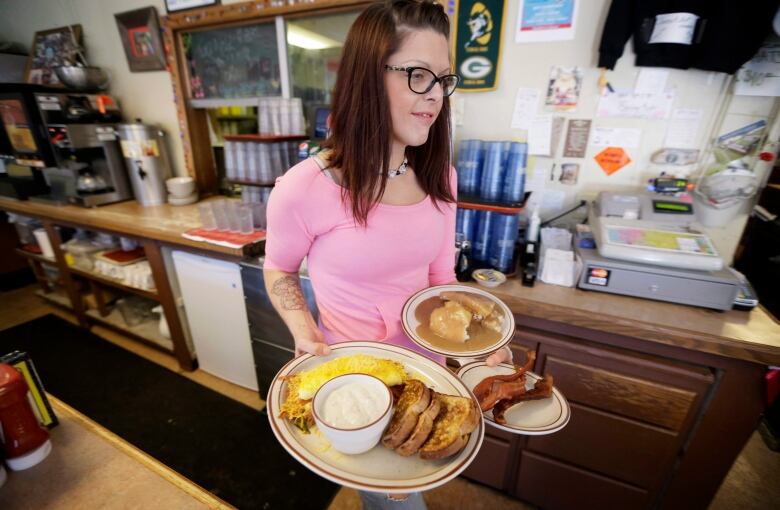B.C.'s minimum wage to increase by over a dollar to $16.75 an hour on June 1
Increase expected to affect 150,000 people and reflects the average annual inflation rate in 2022: province

Minimum-wage workers in British Columbiawill see a pay bump from $15.65to $16.75 an hour starting June 1.
The 6.9 per cent increase reflects the average annual inflation rate in 2022.
The higher wage is expected to affect about 150,000 workers who currently earn less than $16.75 per hour. The province says 58 per cent of those are women, while 21 per cent are youth aged 15-19 who are still atschool.
"It is unfair to expect the most vulnerable workers to give up some of their non-discretionary income because of record-high inflation," Jim Stanford, director for the Centre for Future Work research institute, said in a news release.
The province has promised that all minimum-wage increases will be tied to inflation.
Labour Minister Harry Bains said the 6.9 per centincreasewill also apply to alternate minimum wages for workersincludingresidential caretakers, live-in home-support workers and camp leaders, who are paid daily or monthly rates as opposed to hourly.
Labour shortage
B.C. will havethe second highest minimum wage in the country once the increase goes through, slightly behind Yukon, where the minimum wage is $16.77. However, the province says most jurisdictions are planning to increase their minimum wage rates in 2023.
Minister of Jobs, Economic Development and Innovation Brenda Bailey said a higher minimum wage will make B.C. a more attractive place to live, and will ideally remedy the worker shortage many sectors have been facing for months.
The minimum wage in B.C. was last increased on June 1, 2022, from $15.25 to $15.65.
Last year marked the first year that B.C. tied the minimum wage to the annual inflation rate, which came in at 2.8 per cent. Whenannouncing the hike that went into effect last June, Bains said the government decidedto use the provincial rate of inflation rather than the national rateto better reflect the needs of B.C. workers.
On Wednesday he told reporters there is a possibility that tying minimum wage to inflation could be legislated, but said an announcement around that would come at a later date before the next increase in 2024.
Mixed reaction
Living Wage for Families B.C. says while the increase is welcome, there is still a$7 an hour gap between minimum wage and what is actually requiredfor workers making that amount to be able to survive.
"The government needs to take action to both bring costs down and plan further increases to the minimum wage, so that workers don't have to work multiple jobs just to pay for essentials like food and rent," provincial manager Anastasia French said in a statement.

Marissa Iacobucci, who works in a private liquor store, spoke about her experience making minimum wageas part of a news conference on Wednesday.
She said it can be challenging to make ends meet while also dealing with the rising cost of living.
"Many of my co-workers and community members have to choose between paying rent and buying groceries," she said.
"Living on our own, debt free, on a single wage has become close to impossible."
The Surrey Board of Trade said it's "disappointed" with such a significant increase.
"In the face of ongoing, uncertain, unexpected increases in cost ... [it] really is quite concerning to the sustainability of businesses," board president Anita Huberman said.
She said businesses are facing a "perfect" storm when it comes to operating costs.
Sam Jones, owner of Victoria coffee shop 2% Jazz, said he acknowledges that the current minimum wage is not enough for workers to be able to survive, so he's prioritized paying staff a living wage.
"Despite ourbest efforts to pay our employees fairly ... we often find ourselves struggling to stay afloat," he said.
"Meanwhile, larger corporations continue to reap the benefits of cheap labour and artificially keeping prices low, making it difficult for small businesses like ours to compete."
He said the minimum wage increase is "heartening" to see, but said the ratemust be higher.












_(720p).jpg)


 OFFICIAL HD MUSIC VIDEO.jpg)
.jpg)



























































































